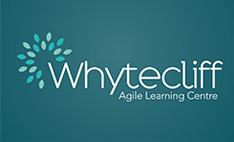Incorporating Well-Being as a Force for Good
Whytecliff recognizes the reality that students today are graduating into a world of immense complexity and uncertainty, where a hurricane of change, shock and disruption is now the norm. With the pace of change continuing to increase, we foresee a mounting wave of adolescent anxiety and depression looming on the horizon. Growing up in today’s turbulent world, then, is like learning to surf in a hurricane; if children aren’t positioned with the skills to stay both anchored and buoyant, they’re all too likely to stumble, feel dragged under, or lose their bearings. At Whytecliff, we recognize the need for fresh solutions which go above and beyond simply helping children get ‘back on their feet’ and across the ‘finish line’ of graduation. We care about kids becoming great adults with great futures, positioned for success whatever the future brings!
Building Core Strengths for “Deep Balance™”
Whytecliff interweaves into the educational curriculum a propriety well-being system which we call ‘Deep Balance’. This system has been designed to gently encourage awareness and promote insight into key areas of well-being and balance in each youth’s life. This 8-element system (soon to be aided by a phone app), is an approach to introducing autonomic nervous system calm and balance, enhancing emotion and attention regulation, increasing self-reflection, and facilitating greater social connection. These 8 elements are presented as well-being ‘exercises’ but are also gently woven into the program as monthly themes and shared experiences and understandings.
A Calm Body is a Calm Mind
To illustrate one of the eight aspects, we start simply – with breathing and relaxation. Breathing is at the core of creating autonomic calm; it helps determine our emotions, influence our body’s pH, and change our gut motility. When children are stressed, they breath in a manner that reduces oxygenated blood supply to the brain and decreases executive functioning (impeding learning and self-regulation). The latest medical science confirms that proper diaphragmatic breathing stimulates the Vagus Nerve, the crucial nerve in our parasympathetic nervous system (which activates our body’s sense of calm).
Whytecliff’s approach is logical and intuitive, avoids pushback, allows children to use their natural faculties, and is anchored in the latest science. This framework also builds on strengths and only starts where children have a natural readiness to grow. At Whytecliff, healthy growth and change becomes the norm; when children look around, all the other children are naturally developing, maturing, expanding their range of gifts and talents, and extending their aspirations upward; it’s contagious! In seeing other kids take the leap, children feel drawn to join in.
Savoring the Good
Every day, we teach children strategies for engaging with positive experiences of life, appreciating them, and savouring them (as well as options to cope with adversity). Research shows that having positive emotions – or being happy – at school, and while learning in particular, can boost effective cognitive processing (Hinton et al. 2008), critical thinking, resilience, and even physical health (Cohn et al. 2009; Fredrickson 2001).
Bouncing Back
“Resilience is like a trampoline; if you’re not attached to the supports around you, you don’t bounce back.”
All of us, with the right resources and supports, have a positive adaptive capacity to not only emerge from difficult circumstances, but to rebound strengthened and more resourceful. While there are many factors, self-valuation, confidence, autonomy and problem-solving seem to be critical for boosting resilience. All of these are nurtured in participants as a natural part of the program’s developmental approach.
At Whytecliff, we create natural opportunities for each student to build these ‘core strengths’ of resilience by weaving them into different subject areas as part of the curriculum. For example, we teach students specific strategies designed to change their perception of negative events and allow them to see positive outcomes. And we teach skills of self-reflection – how to ‘step back’ in order to ‘leap forward’.
Connecting to Solid Ground
Resilience, however, is not simply an intra-personal trait; it transcends the individual and develops largely as a matter of having quality connections to the right resources and supports. Whytecliff helps children seek out additional emotional and practical supports from others and build meaningful, connected relationships (which both buffer children from stress and adversity and promote positive emotions and wider perspectives). We don’t want our students to just bounce back when times are tough, we want them to spring forward – pulled by their future and seeing with fresh eyes.
